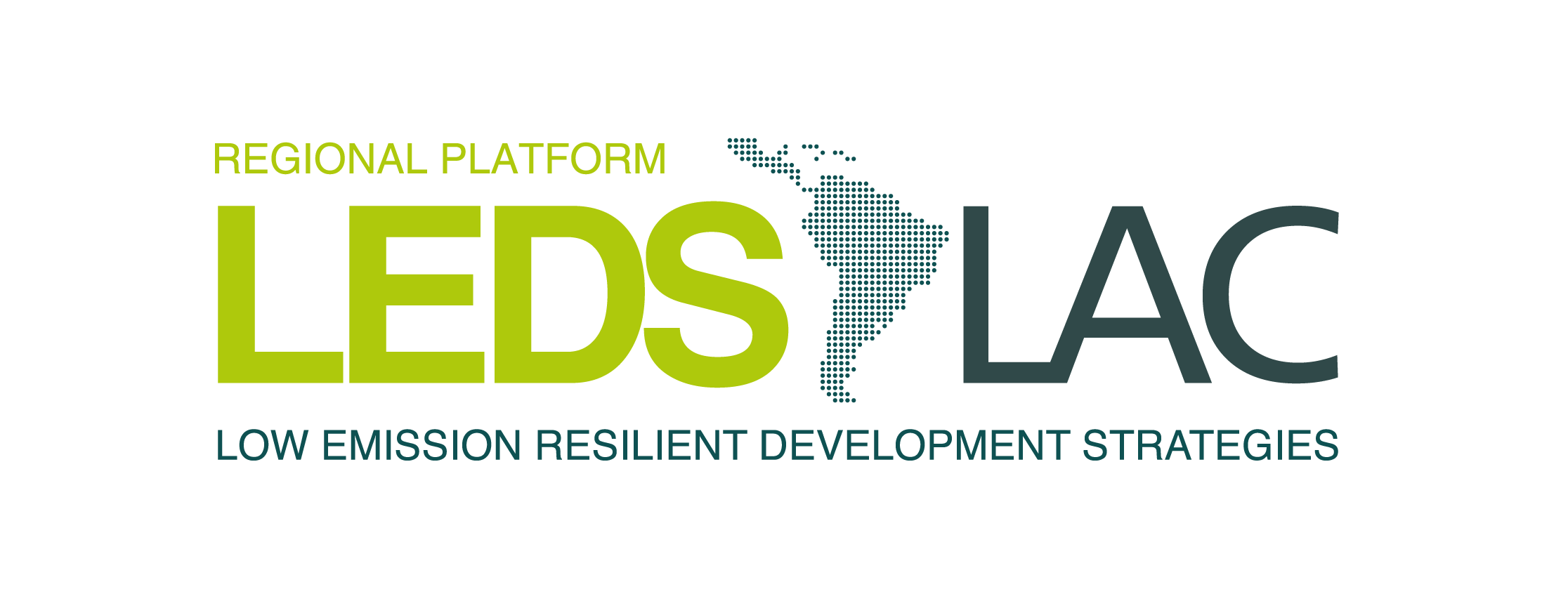Day: Wednesday, September 25, 2019.
Time: 09:00 - 10:30 am (Costa Rican time)
Check the time according to your location here: http://bit.ly/2kkGQsR
Agenda
Welcome. María José Gutiérrez Murray. Technical expert of the Secretariat, LEDS LAC Platform.
Introduction to the basic concepts about refrigerants, their global impact and alternatives to conventional refrigerants. Sofia Nuernberger. Consultant PROKLIMA International, German Development Cooperation (GIZ). Download presentation.
Experiences and challenges in the Refrigeration and Air Conditioning (RAC) sector in Costa Rica. Pilar Alfaro. Institutional Strengthening Coordinator of the Ozone Technical Office, Directorate of Environmental Quality Management (DIGECA). Download presentation.
How to reduce the carbon footprint of refrigerant gas emissions? Mitigation measures, energy savings and waste management: the case of Costa Rica. Rodolfo Elizondo. Advisor, Directorate of Environmental Quality Management (DIGECA) Download presentation.
Measuring the carbon footprint of refrigerant emissions and mitigation and management measures, the case of Monteverde. Katy VanDusen. Coordinator, Monteverde Climate Change Resilience Commission (CORCLIMA). Download presentation.
About the webinar
In this webinar you will learn about some of the major environmental problems caused by refrigerant gases with global warming potential; as well as experiences and challenges. As part of the effort to address the aforementioned problems, the Kigali amendment has been signed, which establishes the gradual elimination of hydrofluorocarbon refrigerant gases (HCF), which have a very high contribution to global warming, an agreement that Costa Rica has ratified and published as law No. 9522 last March 19, 2018.
In Costa Rica, several projects of the German Development Cooperation, GIZ, support the development of climate protection actions as a model of low-emission development (decarbonization) and useful case studies for the countries of the region.
The webinar will share information from the experience of Costa Rica to address the problem of refrigerant gases against climate change and promote good practices in their management, including preventive maintenance and proper disposal of equipment; and promote energy efficiency in the air conditioning and refrigeration sector (RAC), and the experience of the community of Monteverde will be presented. The webinar will be conducted in Spanish. If you have any questions about this event, please contact the LEDS LAC Platform Secretariat: [email protected].
About the panelists
[/fusion_text][/fusion_builder_column][fusion_builder_column type="1_1″ background_position="left top" background_color="" border_size="" border_color="" border_style="solid" spacing="yes" background_image="" background_repeat="no-repeat" padding="" margin_top="0px" margin_bottom="0px" class="" id="" animation_type="" animation_speed="0.3″ animation_direction="left" hide_on_mobile="no" center_content="no" min_height="none"][fusion_content_boxes settings_lvl="parent" layout="icon-on-side" columns="1″ icon_align="left" title_size="" title_color="" body_color="" backgroundcolor="" icon_circle="" icon_circle_radius="" iconcolor="" circlecolor="" circlebordercolor="" circlebordercolor="" circlebordersize="" outercirclebordercolor="" outercirclebordersize="" icon_size="" icon_hover_type="" hover_accent_color="" link_type="" link_area="" link_target="" animation_delay="" animation_offset="" animation_type="0″ animation_direction="left" animation_speed="0.1″ margin_top="" margin_bottom="" class="" id=""][fusion_content_box title="Sofia Nuernberger" icon="" backgroundcolor="" iconcolor="" circlecolor="" circlebordercolor="" circlebordersize="" outercirclebordercolor="" outercirclebordersize="" iconrotate="" iconspin="" no" image="https://ledslac.org/wp-content/uploads/2019/09/bild_sofia_nuernberger-1.jpg" image_width="130″ image_height="130″ link="" linktext="" link_target="_self" animation_type="" animation_direction="" animation_speed=""]Sofia Nürnberger is Project Manager at GIZ Proklima, where she coordinates activities in Latin America and the Caribbean. Sofia is a Chemical Engineer and Environmental Engineer, and has worked for the last 10 years at GIZ, especially on urban-industrial environmental and climate protection issues.[/fusion_content_box][fusion_content_box title="Pilar Alfaro" icon="" backgroundcolor="" iconcolor="" circlecolor="" circlebordercolor="" circlebordersize="" outercirclebordercolor="" outercirclebordercolor="" outercirclebordersize="" iconrotate="" iconrotate="" iconspin="no" image="https://ledslac.org/wp-content/uploads/2019/09/Pilar-Alfaro.jpg" image_width="130″ image_height="130″ link="" linktext="" link_target="_self" animation_type="" animation_direction="" animation_speed=""]Pilar Alfaro is Coordinator of Institutional Strengthening of the Ozone Technical Office, which is part of the Environmental Quality Management Directorate of the Ministry of Environment and Energy, and is a consultant for the United Nations Development Program.[/fusion_content_box][fusion_content_box title="Rodolfo Elizondo" icon="" backgroundcolor="" iconcolor="" circlecolor="" circlebordercolor="" circlebordersize="" outercirclebordercolor="" outercirclebordercolor="" outercirclebordersize="" iconrotate="" iconrotate="" iconspin="no" image="https://ledslac.org/wp-content/uploads/2019/09/Rodolfo.jpg" image_width="130″ image_height="130″ link="" linktext="" link_target="_self" animation_type="" animation_direction="" animation_speed=""]Rodolfo Elizondo is an industrial maintenance engineer with more than 25 years of experience in the industrial, energy and environmental fields. He holds a Master's degree in electromechanical engineering management, with emphasis in energy management. He has been working as a consultant for the United Nations Development Program and the Ministry of Environment and Energy in the implementation of the Montreal Protocol in Costa Rica since 2005. He is a professor and researcher at the School of Electromechanical Engineering of the Tecnológico de Costa Rica since 2004.[/fusion_content_box][fusion_content_box title="Katy VanDusen" icon="" backgroundcolor="" iconcolor="" circlecolor="" circlebordercolor="" circlebordersize="" outercirclebordercolor="" outercirclebordersize="" iconrotate="" iconspin="no"" image="" image_width="130″ image_height="130″ link="" linktext="" link_target="_self" animation_type="" animation_direction="" animation_speed=""]Katy VanDusen is coordinator of the Commission towards Climate Change Resilience in Monteverde, Costa Rica (CORCLIMA) since 2016, whose goal is to unite the Monteverde community to reduce emissions, sequester carbon and adapt to climate change as soon as possible.[/fusion_content_box][/fusion_content_boxes][/fusion_builder_column][/fusion_builder_column][/fusion_builder_row][/fusion_builder_container].
